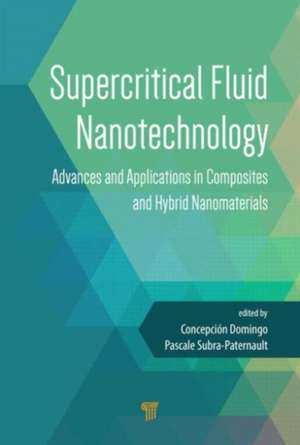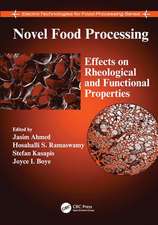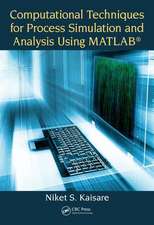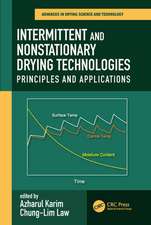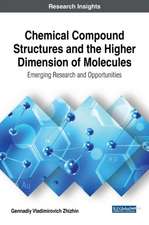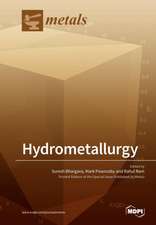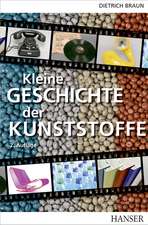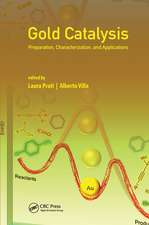Supercritical Fluid Nanotechnology: Advances and Applications in Composites and Hybrid Nanomaterials
Autor Concepcion Domingo Pascual, Pascale Subra-Paternaulten Limba Engleză Hardback – 20 oct 2015
Preț: 661.01 lei
Preț vechi: 881.50 lei
-25% Nou
Puncte Express: 992
Preț estimativ în valută:
126.50€ • 137.36$ • 106.26£
126.50€ • 137.36$ • 106.26£
Carte tipărită la comandă
Livrare economică 22 aprilie-06 mai
Preluare comenzi: 021 569.72.76
Specificații
ISBN-13: 9789814613408
ISBN-10: 9814613401
Pagini: 566
Ilustrații: 165 black & white illustrations, 13 colour illustrations
Dimensiuni: 152 x 229 mm
Greutate: 0.91 kg
Ediția:1
Editura: Jenny Stanford Publishing
Colecția Jenny Stanford Publishing
ISBN-10: 9814613401
Pagini: 566
Ilustrații: 165 black & white illustrations, 13 colour illustrations
Dimensiuni: 152 x 229 mm
Greutate: 0.91 kg
Ediția:1
Editura: Jenny Stanford Publishing
Colecția Jenny Stanford Publishing
Public țintă
Academic and PostgraduateCuprins
Part I. Introduction to supercritical fluid technology: critical conditions and basis of supercritical processing. Part II. Supercritical CO2 precipitation methods. Part III. Introduction to reactive processes in supercritical fluids: scCO2 as a reagent or as a solvent. Part IV. Polymer modification in supercritical carbon dioxide: foaming and impregnation. Part V. Coating and impregnation processes using dense phase CO2. Part VI: Introduction to characterization: experimental design, process monitoring and products analysis.
Notă biografică
Concepción Domingo received her MSc in chemistry at the Barcelona University (Spain) followed, in 1992, by a PhD in materials science. In 1994 she joined the Chemical Engineering Department at the TU-Delft (the Netherlands), starting the research in the area of supercritical fluids. Currently, she is leader of the Supercritical Fluids and Functional Materials group at the Materials Science Institute of Barcelona (CSIC). She has focused her scientific objectives on the synthesis, characterization, and development of micro- and nanoparticulate systems and the preparation of composite materials by using two major groups of processing methods: colloidal solutions and sol–gel routes to supercritical solutions. Dr. Domingo has published more than 100 articles in internationally recognized journals, most of them related to supercritical fluid technology for nanomaterials preparation, encapsulation, and functionalization, applied to biomaterials and high-tech functions. Most of her research is directed to the synthesis and functionalization of porous systems using supercritical CO2 for high-performance applications.
Pascal Subra-Paternault is a CNRS senior scientist who has been working with supercritical fluids for more than 25 years in the fields of natural products, crystallization, particles generation, and modification (precipitation, formulation, coating, infiltration, surface grafting). After obtaining a PhD in analytical chemistry in 1989, she pursued her career at LIMHP (Materials and Process Engineering), spent a year at Princeton University, USA (P. Debenedetti’s group), moved to Université de Bordeaux in 2006, and joined CBMN Institute in 2011 (processing bio- and pharmaceutical molecules), where she leads a team of 10 members. Her research, supported by European, national, and private funding, is currently focused on extraction, purification, and formulation of bioactive molecules (mostly lipids and polyphenols) and fabrication of cocrystals.
Pascal Subra-Paternault is a CNRS senior scientist who has been working with supercritical fluids for more than 25 years in the fields of natural products, crystallization, particles generation, and modification (precipitation, formulation, coating, infiltration, surface grafting). After obtaining a PhD in analytical chemistry in 1989, she pursued her career at LIMHP (Materials and Process Engineering), spent a year at Princeton University, USA (P. Debenedetti’s group), moved to Université de Bordeaux in 2006, and joined CBMN Institute in 2011 (processing bio- and pharmaceutical molecules), where she leads a team of 10 members. Her research, supported by European, national, and private funding, is currently focused on extraction, purification, and formulation of bioactive molecules (mostly lipids and polyphenols) and fabrication of cocrystals.
Recenzii
"This book shows the interesting versatility of supercritical fluid technology in materials preparation for completely novel applications. The authors, as well as the editors, are internationally recognized experts who have put together an enjoyable and useful recompilation of the main discoveries in the development of this new green technology."
— Dr. Julio San Román, Institute of Polymer Science and Technology (ICTP-CSIC), Spain
— Dr. Julio San Román, Institute of Polymer Science and Technology (ICTP-CSIC), Spain
Descriere
The environmental and climate program demands technological solutions in the chemical industry that incorporate prevention of pollution. This book concerns the analysis of the advantages of using compressed CO2 to produce not only improved materials in a better way, but also new nanoproducts. Recovering and using CO2, otherwise released into the atmosphere, is a means of recycling emissions resulting from other users. The use of supercritical CO2 is a complex option from a conceptual point of view requiring enhanced technical preparation.
